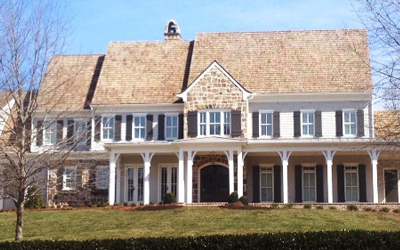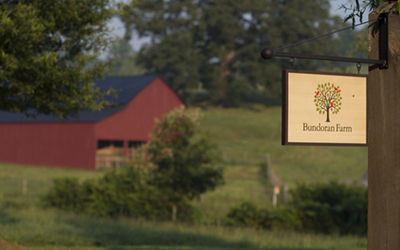Frequently Asked Questions
We offer four different plan packages, which include the Pricing Set - 1 Set, Construction Set - 5 Sets, PDF Plan Set, and electronic CAD files. If you are ready to build a home as drawn, the Construction Set - 5 Set package provides a set for yourself, your builder, mortgage lender, insurance company, local building department, and several subcontractors. If you need more than 5 sets or plan to make modifications, then we recommend the PDF Plan Set package. These plans can be printed as needed.
A PDF Plan Set is an electronic file of the construction drawings, formatted most often for 24" x 36" output, which allows you - through qualified architects and engineers - to legally modify the design without having to completely redraw the plan. As a derivative work, you are only allowed to build the home a single time under copyright restrictions. The CAD set serves the same function, but provides the drawings in an electronic format. [Note: not all Sunset house plans are available as CAD sets.]
A mirrored, or reverse print set, is a printed copy of your house resulting in the same image you would see if you held the drawing up to a mirror. Everything, including the text, is backward in relation to the original design. A Mirrored (reverse print) set is often ordered to meet the particular demands of the building site.
Materials lists are currently available for a select number of plans, as noted under the “Additional Options” section of the Plan Detail.
A materials list contains the building supplies needed to construct the infrastructure of your new house, including lumber, insulation, rafters, concrete, and hardware. Please contact us if you would like additional information about the plans for which a materials list is available.
A Study Plan includes all of the information that can be found online for a particular plan, including plan details, floor plans, and renderings. A Study Plan also includes the four exterior elevations.
Pre-drawn house plans from Sunset vary in price from $500 to over $5,000, based on which plan and set option you choose. This is a fraction of the cost to hire a local architect to design a custom plan, which can run between 4% to 12% of the total construction cost.
There are several factors that affect the cost of residential construction, including the total amount of finished square footage, regional building codes, quality and grade of materials used to construct the home, and the level of interior finish desired. Since each of these factors vary by project and location, we are unable to provide construction cost estimates as a service.
However, a qualified home builder in the area you plan to build your home should be able to provide you with a rough estimate or average cost-to-build-per-square-foot. If you haven’t already selected a builder, we recommend contacting any member of the Southern Living Custom Builder Program (SLCBP), who would be happy to discuss the specifics of your project in greater detail. You can search for SLCBP builders in your area by visiting the Southern Living Custom Builder website.
The short answer: yes. [See questions 10 - 12 for information] Whether you would like to add a garage, bedroom, bathroom, move a window, or make a room larger, we can assist you with these design modifications.
Some common modifications include:
- Eliminating windows, fireplaces, false dormers
- Adding a garage or adjusting the size of the garage
- Rearranging interior walls or changing the dimensions of a room
- Changing ceiling heights
- Changing exterior materials
- Changing exterior wall framing (2x4 to 2x6)
- Changing foundation type (Crawlspace, Pier/Pole, Walkout Basement, Slab, etc.)
- Changing roof pitch
- Adding, eliminating, or changing the dimensions of bedrooms and bathrooms
- Adding, eliminating, or changing the dimensions of a porch
- Stretching or reducing the square footage of a plan
Modification costs vary from plan to plan as well as the extent of the changes being made to the plan. Generally speaking, modification costs are 2 to 3 times the cost of the plan itself. For design modifications, we often work with our clients on an hourly basis, but this may vary depending on the scope of the project. Keep in mind that modifications to pre-drawn house plans are a cost-effective way to design a one-of-a-kind home, when compared with hiring an architect to design a custom home from scratch.
The timeline for a house plan modification can vary greatly depending on the size and scope of the work. A typical project takes approximately 3-5 weeks, but may take longer depending on the specific details of the project, such as structural and/or engineering changes, review points, and Architectural Review Board (ARB) approvals.
We do our best to upload photos from completed projects to the website. If the plan that you like does not have photos displayed, it is likely that we have not received photos of a completed project. Please contact us and we will attempt to obtain additional photos for you.
To protect the privacy of our customers, we cannot give out the location where a home was built, unless it was a showcase home open to the public. For more information, please see our Privacy Policy.
The Southern Living Custom Builder Program (SLCBP) is a network of the South’s top custom home builders acclaimed for their detailed craftsmanship, excellence in customer service, financial stability, and use of quality building materials in their homes. Members are accepted to the program after reviewing homeowner and business references, and conducting a site visit to ensure we are selecting a builder that will deliver a quality custom home, and the customer service you expect.
If you haven’t already selected a builder, you can contact any member of the Southern Living Custom Builder Program (SLCBP) and they would be happy to discuss the specifics of your project with you in greater detail.
Find out more about SLCBP builders by visiting: http://www.southernlivingcustombuilder.com
Total living square footage includes only the conditioned area of the house, using the perimeter outline of the structure. It does not include the garage, storage areas, or future spaces.
Local HVAC codes, climatic requirements, and commonly used systems vary greatly throughout the country. Your local HVAC contractor, plumber, electrician, and/or lighting designer can determine the best layout for your new home.
Yes. For example, if you would like to change the foundation from a slab to a crawl space, we can assist you.
We cannot accept returns on house plans at this time due to copyright issues. If you would like to select a different plan, we will exchange one plan for another; an exchange fee of 20% would apply.
Building codes are standards created to ensure the structural safety of buildings. They are enforced by your local government, usually through your city or county’s building department. Every state, county, and local municipality adopts their codes from one of the three nationally recognized building codes: UBC (Uniform Building Code), BOCA (Building Officials and Code Administrators), and CABO (Council of American Building Officials). The new IRC (International Residential Code) is a combination of all three; all are very similar in content.
Many regions have additional, more stringent regulations due to extreme weather or geographical conditions, for example earthquake-prone areas of the Pacific Coast, hurricane-risk areas of the Atlantic and/or Gulf Coast, the greater Chicago area, and many parts of New York. Make sure to inquire with your local building department for specifics information, or, visit the International Code Council (ICC) website: http://www.iccsafe.org/
We can make design changes to accommodate most building code requirements. If a seal, stamp, or specific engineering is required in your area, a local engineer or architect may have to review and revise the plans to accommodate your unique building codes.
Almost, with a few exceptions, depending on where you are building your house. All building departments will require a site plan to show where the house will sit on the property. You might also need beams sized to accommodate roof loads specific to your region. Your home builder can usually help with this. If you are not connecting to a sewer system, you will also need a septic design attached to your application. Many areas also require compliance with local energy codes, which is normally a simple form to fill out and to attach to your application. In some regions, you will also need to ensure that your house plans are in compliance with local codes, as some areas of the United States require strict engineering requirements. These areas may include earthquake-prone areas of California and the Pacific Coast, hurricane-risk areas of the Florida, Carolina, Atlantic, and Gulf Coasts. If you are building in these areas, you will most likely need to hire a state-licensed structural engineer to analyze the design and to provide any additional drawings and calculations required by your local building department. If you are not sure, contact your local building department to see what items are required in order to obtain a building permit.

